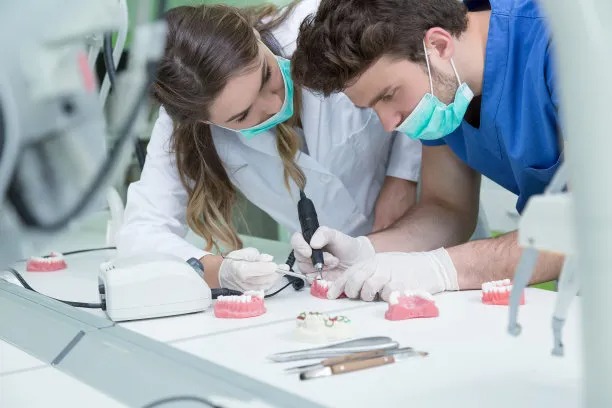Revolutionizing Smiles with Dental Implants A Comprehensive Guide to Benefits What to Expect During the Procedure
Summary: Dental implants are rapidly changing the landscape of oral health, offering a revolutionary solution for those seeking to restore their smiles. This comprehensive guide outlines the numerous benefits of dental implants, preparing individuals for what they can expect during the procedure. From improved aesthetics and enhanced comfort to superior functionality and long-lasting results, dental implants offer a transformative experience. In this article, we will explore these benefits in detail and provide insights into the procedure to help anyone considering dental implants make an informed decision.
1. Aesthetic Appeal of Dental Implants

One of the foremost benefits of dental implants is their exceptional aesthetic appeal. Unlike dentures or bridges, which may look artificial or ill-fitting, dental implants are designed to mimic the appearance of natural teeth. The implant is anchored directly into the jawbone, allowing for a stable foundation and a natural look that integrates seamlessly with existing teeth.
The ability to choose the color and shape of the replacement teeth allows individuals to create a smile that reflects their unique personality and preferences. This customization enhances self-esteem and provides patients with the confidence to smile freely in social situations.
Furthermore, dental implants prevent bone loss in the jaw, which can occur with missing teeth. By maintaining facial structure, dental implants help retain a youthful appearance, further emphasizing their aesthetic benefits.
2. Enhanced Comfort and Functionality
Dental implants also offer superior comfort and functionality compared to traditional tooth replacement options. Because they are anchored in the jawbone, implants act like natural teeth, providing the stability needed for everyday functions such as eating and speaking. This secure fit eliminates the discomfort associated with dentures, which may shift or cause soreness.
Patients with dental implants can enjoy a varied diet without the fear of their prosthetic teeth slipping. Chewing is more efficient, allowing for a more enjoyable dining experience. Additionally, well-placed implants do not interfere with speech, as some dentures might, leading to clearer communication.
Moreover, dental implants are easy to maintain. With proper oral hygiene, they can last for many years, providing long-term comfort and functionality that far surpasses temporary solutions.
3. Long-Lasting Results and Durability
One of the most compelling reasons to opt for dental implants is their longevity and durability. Unlike dentures that require replacement every few years, dental implants are designed to last a lifetime with appropriate care. This long-term investment can save money and time in the long run, making implants a smart choice for many people.
The materials used in dental implants, such as titanium, are highly resistant to decay and damage. Once the implant is fused to the bone—a process called osseointegration—it becomes a stable part of the body, ensuring that it functions like a natural tooth and remains secure over time.
Additionally, with advancements in dental technology, success rates for dental implants are remarkably high, often exceeding 90%. This reliability offers peace of mind and reinforces the perception of implants as a permanent solution for tooth loss.
4. What to Expect During the Procedure
Understanding what to expect during the dental implant procedure is essential for anyone considering this transformative treatment. The procedure typically begins with an initial consultation, where the dentist evaluates the patients oral health and discusses the treatment plan. Imaging techniques, such as X-rays, may be employed to assess bone density and determine the ideal placement for the implants.
During the actual procedure, local anesthesia is administered to ensure comfort. The dentist then places the implant into the jawbone, which typically only requires a small incision in the gum. After implantation, patients may experience some swelling or discomfort as the site heals, but this is generally manageable with prescribed pain relievers.
The healing process can take several months, during which osseointegration occurs. Once fully healed, the dentist will attach the custom-made crown, completing the process. Its crucial for patients to follow post-operative care instructions to ensure successful outcomes and minimize any potential complications.
Summary:
In conclusion, dental implants offer a revolutionary approach to tooth restoration, providing a permanent solution that enhances aesthetics, comfort, and functionality. By understanding the numerous benefits as well as the procedural expectations, individuals seeking to restore their smiles can make informed choices that align with their oral health goals.
This article is compiled by Vickong Dental and the content is for reference only.



